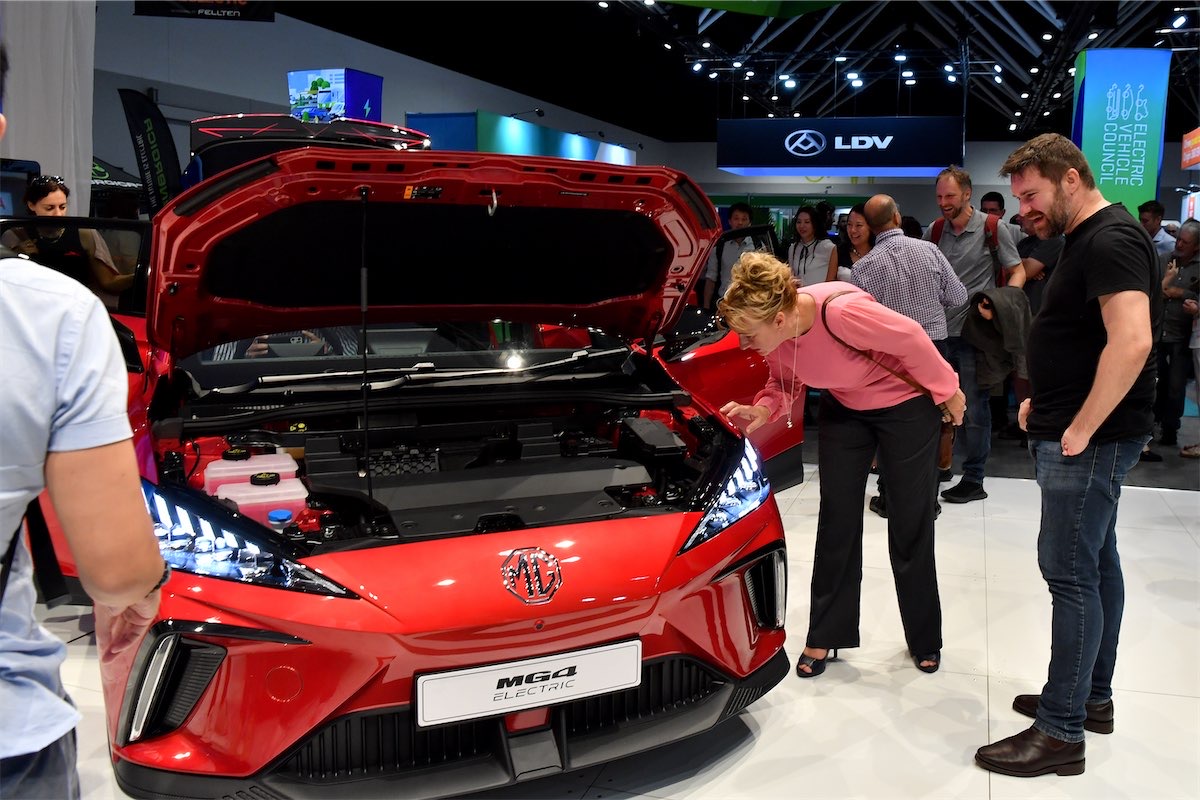
The falling price of some electric cars is making more Australian motorists move, but potential savings come from more than the price tag, reports JENNIFER DUDLEY-NICHOLSON.
THE sticker price of electric vehicles is falling in Australia, with one-third slipping under the $40,000 barrier and one of the country’s most popular models reduced to its lowest cost to date.
But according to research and experts, the lower prices do not reveal the full savings the technology can deliver for motorists.
Price parity with petrol and diesel vehicles could be less than four years away, a study shows, and potential fuel and maintenance savings means some owners are already cutting their transport costs “from day one”.
And with electricity from the right source, they say EV drivers could save more than the studies estimate.
The latest research into the cost of electric vehicles, prepared by Mandala, found introducing a fuel-efficiency standard in Australia could deliver yearly savings of $1200 for electric vehicle owners or $10,000 over the life of a vehicle.
Climate Council advocacy head Dr Jennifer Rayner says lower running costs could quickly close the gap on the higher initial cost for electric vehicles, with most savings made by avoiding service stations.
“The primary saving for people who buy an electric vehicle is in their petrol costs,” she said.
“We know that filling up an EV with clean, renewable electricity, for example, is significantly cheaper than paying for fuel at the petrol pump.
“The biggest saving people will make is no longer being reliant on high and volatile petrol prices.”
The study’s findings are similar to those made in Finder’s 2023 Green Report, in which senior money expert Sarah Megginson says the company compared average petrol costs to the cost of charging an electric car at home and in public.
“We based it on the number of kilometres an average Australian drives – 15,000km a year – and we picked a petrol price of $1.85 a litre, which was the average for May this year,” she said.
“The petrol car came in around $3100 in petrol costs and the electric car came in around $1900 so drivers saved about $1100 a year.”
Electric vehicle drivers with solar power at home have the potential to make bigger savings, Ms Megginson says.
A second factor investigated by both reports was the lower cost of maintaining an electric vehicle.
Unlike petrol and diesel cars, automakers often recommend servicing electric vehicles every two years rather than every six months.
MG, for example, quotes a two-year service period for its ZS EV SUV, while market leader Tesla recommends testing a vehicle’s brake fluid every two years and changing cabin air filters every two to three years, depending on the model.
Good Car Company co-founder Anthony Broese van Groenou says electric cars need fewer visits to the mechanic because they have fewer moving parts. Even the cost of replacing batteries – a major concern for some potential buyers – was falling, he says, and lasted years longer than anticipated.
“Four years ago, the price of replacement batteries was around $20,000 and now they’re coming in around $12,000 with double the capacity,” he said.
“If you’re getting 10 to 15 years of life out of a battery, imagine how affordable those batteries are going to be by the time that comes around.”
The Mandala research, commissioned by the Climate Council and Electric Vehicle Council, also found a strong fuel-efficiency standard could reduce the price of electric vehicles by 2.8 per cent each year, and raise the price of petrol and diesel vehicles by 0.3 per cent.
Price parity between the two vehicle types, it found, could occur in 2027 under an ambitious standard.
GWM has lowered the price of its Ora electric car to make it the third model available for less than $40,000, alongside the MG4 and BYD Dolphin.
Tesla also reduced the price of its entry-level vehicle, the Model 3, to its lowest price to date in Australia at $57,400.
Mr Broese van Groenou says the growing trend meant savvy buyers who could afford the up-front price could cut their transport costs quickly.
“Even before cheaper vehicles started arriving, a Tesla Model 3 was at price parity with a (Toyota) Corolla after five years,” he said.
“Now you’ve got the purchase price being near parity with an equivalent diesel vehicle, you’re saving from day one.”
Dr Rayner says Australians could unlock greater savings for motorists when a fuel-efficiency standard encouraged brands to import more zero-emission models to the country.
“We’re seeing prices for electric vehicles come down rapidly but we’re still not getting the range of options in Australia that are available elsewhere,” she said.
“In our analysis, there were 200-odd electric models available in the European Union and only 50 in Australia.”
The federal government has committed to introducing a fuel-efficiency standard draft to parliament by the end of the year.
The ACT government has devised a new cost-comparison web tool designed to make it easier to better understand the running costs of EVs.
Who can be trusted?
In a world of spin and confusion, there’s never been a more important time to support independent journalism in Canberra.
If you trust our work online and want to enforce the power of independent voices, I invite you to make a small contribution.
Every dollar of support is invested back into our journalism to help keep citynews.com.au strong and free.
Thank you,
Ian Meikle, editor





Leave a Reply